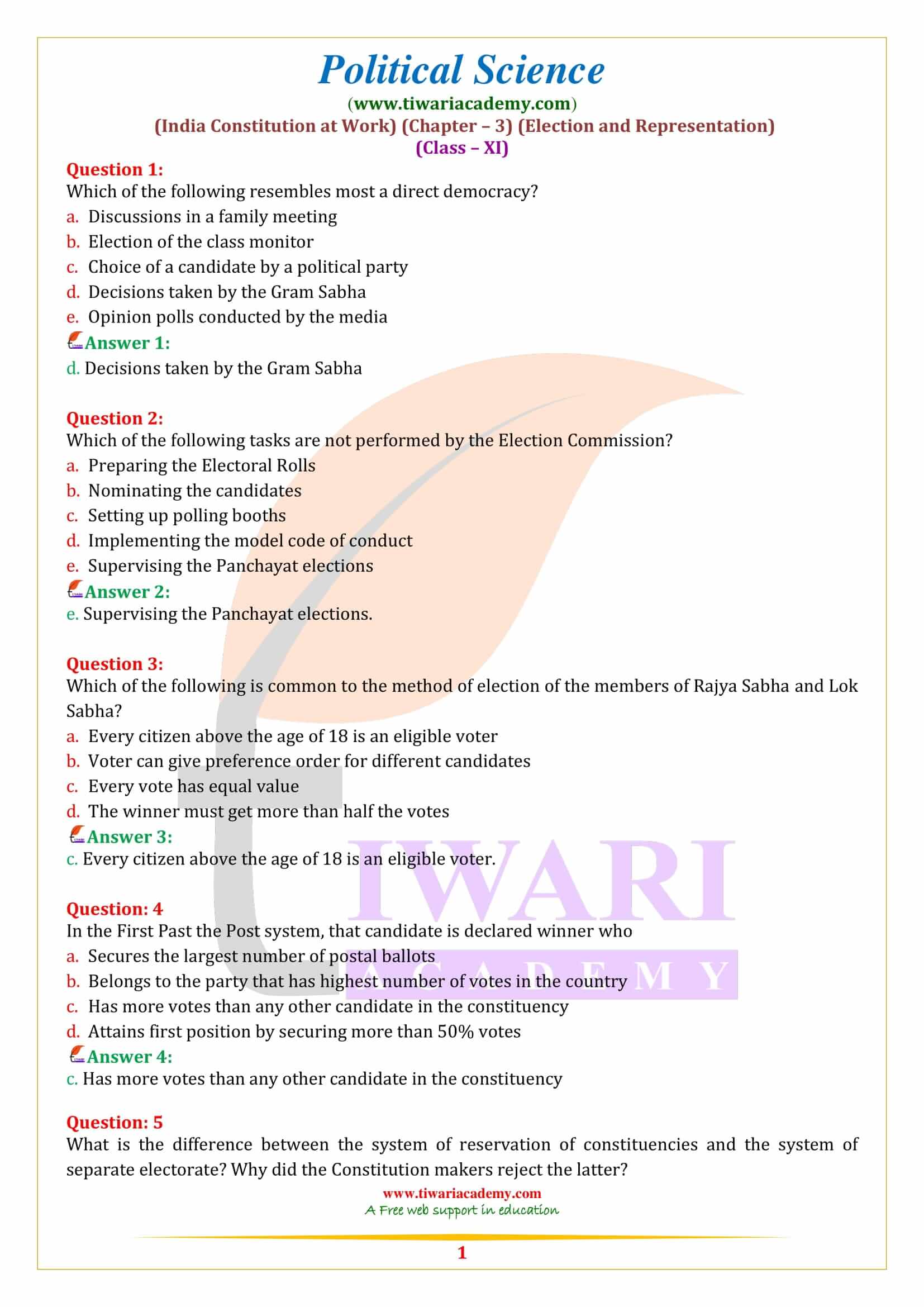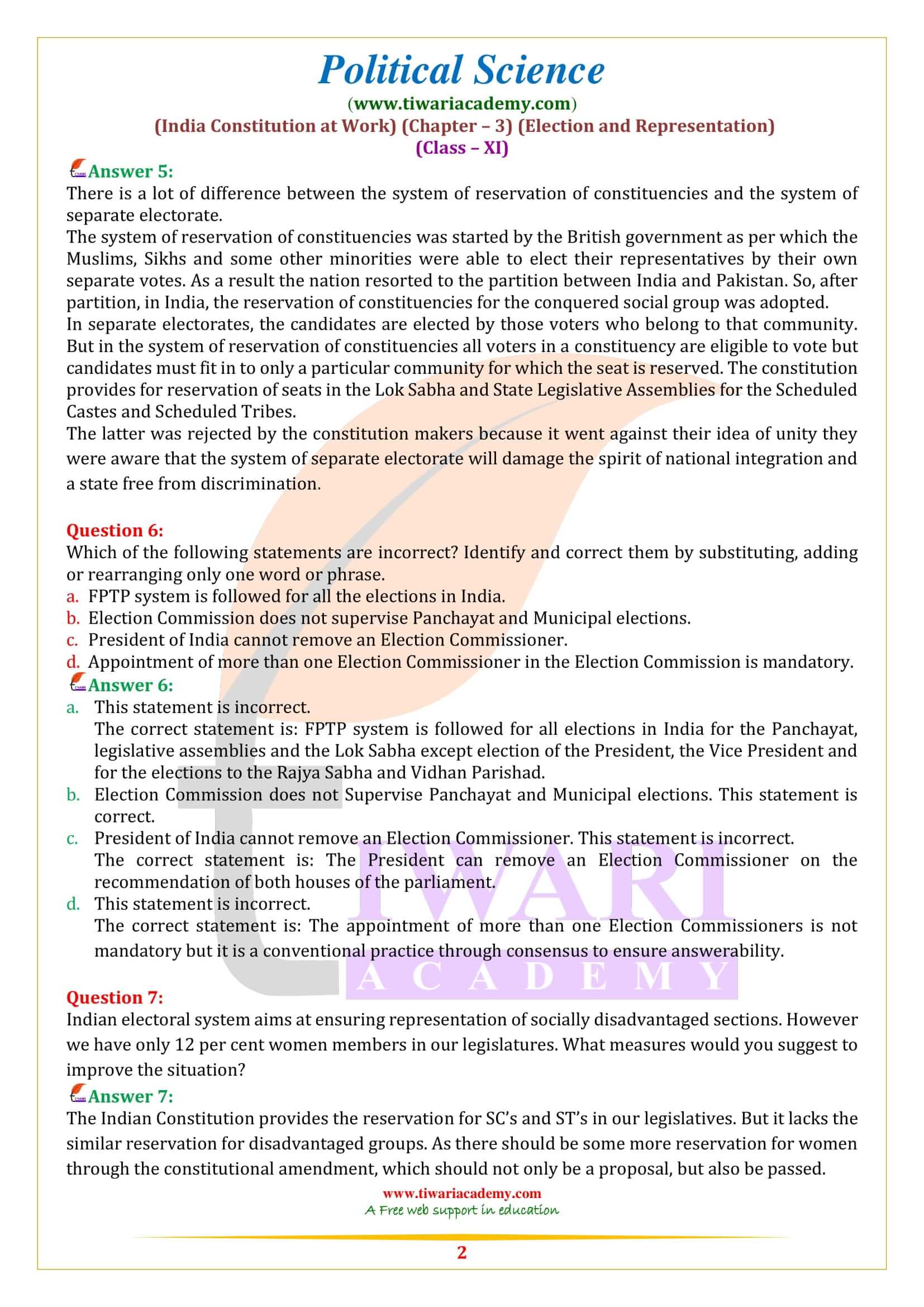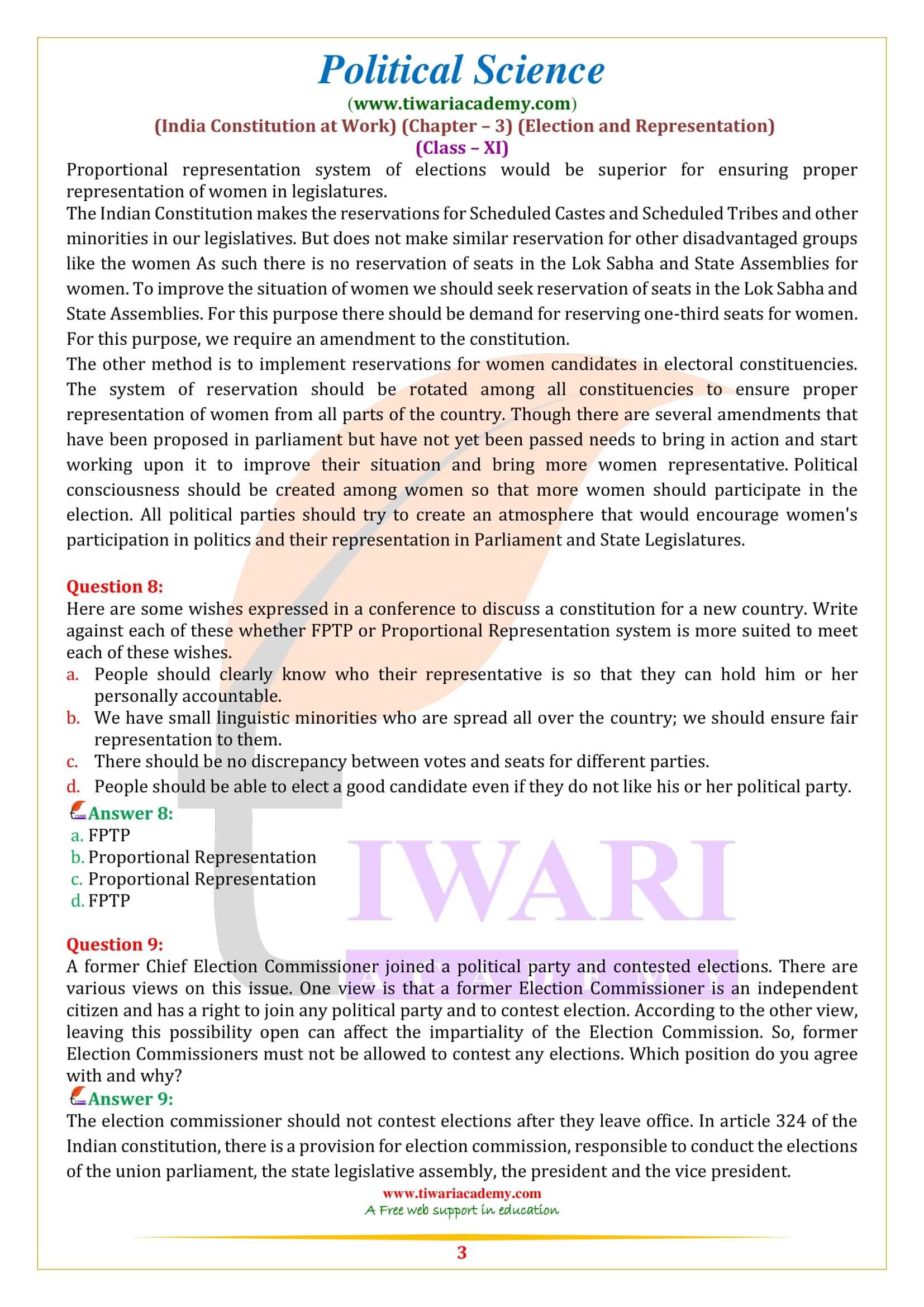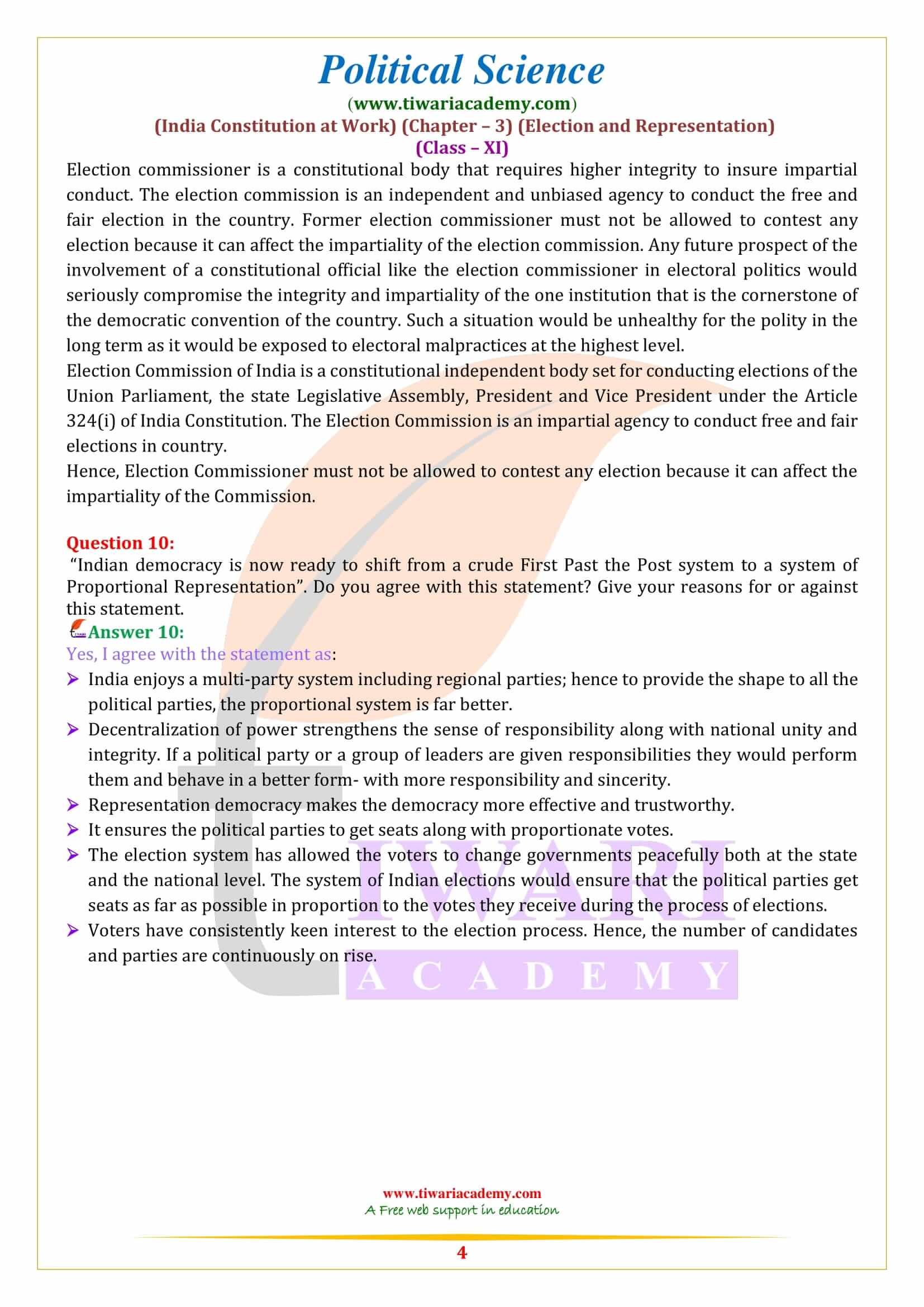NCERT Solutions for Class 11 Political Science Chapter 3 Election and Representation in Hindi and English Medium modified for new academic session 2025-26. Class 11 Political Science chapter 1 of Indian Constitution at Work are simplified for CBSE as well as state board students.
NCERT Solutions for Class 11 Political Science Chapter 3
Indian democracy is now ready to shift from a crude First Past the Post system to a system of Proportional Representation. Do you agree with this statement? Give your reasons for or against this statement.
Yes, I agree with the statement as:
- India enjoys a multi-party system including regional parties; hence to provide the shape to all the political parties, the proportional system is far better.
- Decentralization of power strengthens the sense of responsibility along with national unity and integrity. If a political party or a group of leaders are given responsibilities they would perform them and behave in a better form- with more responsibility and sincerity.
- Representation democracy makes the democracy more effective and trustworthy.
- It ensures the political parties to get seats along with proportionate votes.
- The election system has allowed the voters to change governments peacefully both at the state and the national level. The system of Indian elections would ensure that the political parties get seats as far as possible in proportion to the votes they receive during the process of elections.
- Voters have consistently keen interest to the election process. Hence, the number of candidates and parties are continuously on rise.
What is the difference between the system of reservation of constituencies and the system of separate electorate? Why did the Constitution makers reject the latter?
There is a lot of difference between the system of reservation of constituencies and the system of separate electorate.
The system of reservation of constituencies was started by the British government as per which the Muslims, Sikhs and some other minorities were able to elect their representatives by their own separate votes. As a result the nation resorted to the partition between India and Pakistan. So, after partition, in India, the reservation of constituencies for the conquered social group was adopted.
In separate electorates, the candidates are elected by those voters who belong to that community. But in the system of reservation of constituencies all voters in a constituency are eligible to vote but candidates must fit in to only a particular community for which the seat is reserved. The constitution provides for reservation of seats in the Lok Sabha and State Legislative Assemblies for the Scheduled Castes and Scheduled Tribes.
The latter was rejected by the constitution makers because it went against their idea of unity they were aware that the system of separate electorate will damage the spirit of national integration and a state free from discrimination.
Class 11 Political Science Chapter 3 MCQ
Which of the following resembles most a direct democracy?
Which of the following tasks are not performed by the Election Commission?
Which of the following is common to the method of election of the members of Rajya Sabha and Lok Sabha?
In the First Past the Post system, that candidate is declared winner who
Indian electoral system aims at ensuring representation of socially disadvantaged sections. However we have only 12 per cent women members in our legislatures. What measures would you suggest to improve the situation?
The Indian Constitution provides the reservation for SC’s and ST’s in our legislatives. But it lacks the similar reservation for disadvantaged groups. As there should be some more reservation for women through the constitutional amendment, which should not only be a proposal, but also be passed.
Proportional representation system of elections would be superior for ensuring proper representation of women in legislatures.
The Indian Constitution makes the reservations for Scheduled Castes and Scheduled Tribes and other minorities in our legislatives. But does not make similar reservation for other disadvantaged groups like the women As such there is no reservation of seats in the Lok Sabha and State Assemblies for women. To improve the situation of women we should seek reservation of seats in the Lok Sabha and State Assemblies. For this purpose there should be demand for reserving one-third seats for women. For this purpose, we require an amendment to the constitution.
The other method is to implement reservations for women candidates in electoral constituencies. The system of reservation should be rotated among all constituencies to ensure proper representation of women from all parts of the country. Though there are several amendments that have been proposed in parliament but have not yet been passed needs to bring in action and start working upon it to improve their situation and bring more women representative. Political consciousness should be created among women so that more women should participate in the election. All political parties should try to create an atmosphere that would encourage women’s participation in politics and their representation in Parliament and State Legislatures.





